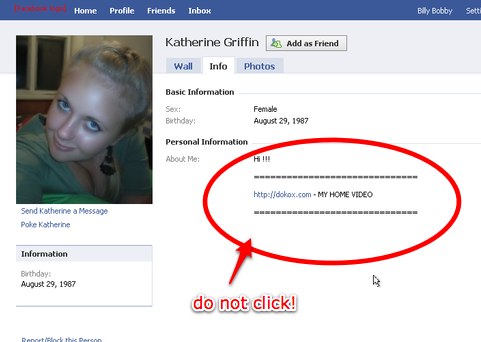Adventures in Facebook Friending

By Jason Burgos
Facebook, it’s a brand name that is a part of the global lexicon. Many visit the site daily to check out their friends’ status and chat. The site has created a new verb “to friend,” or as the Urban Dictionary defines it, “the act of requesting someone to be your friend on Facebook.com, in which they can accept or reject you.” This unique way of growing one’s digital inner circle creates moments that can be awkward and unnerving.
In January there were 1.39 billion active Facebook users. There are 7.3 billion people on the planet, meaning that 19% of the human race is on Facebook. For the individuals who do not have a Facebook account, 52% of them have someone else in their household that is an active user.
This conglomeration of digital relations seems to have its strongest friending influence with people between the ages of 18 to 49. Among 18 to 29-year-olds, the median number of friends is 300, while 30 to 49-year-olds fall below that at 200. Now, if you were curious about your grandparents, the 65 and up crowd only averages 100 friends. This might make them a bit jealous as 27% of 18 to 29 year-olds average more than 500 friends.
For many, adding friends on Facebook is a way to keep in touch with family and friends from the past or present. It is that ability to reconnect with old classmates you haven’t seen since 9th grade, or the cousin you haven’t talked to since that vacation when you were 15. However, there is an awkward aspect to Facebook friending. Often friend requests come from folks you don’t know. While these instances can lead to new friendships or intimate relationships, they can also result in harassment or cyberstalking.

We asked 50 random people about their experiences being friended. Of the 50 anonymous responders, 36 were female (53% of all Facebook users are female) and 14 were male. Most, 40, had 200 or more friends. When it came to sending or receiving requests, 17 people said they received more requests then they sent, while 29 of them felt it was about even. The purpose for those requests varied though. One person wrote:
“My daughter was asked to be on a BMX team through Facebook. I thought that was exciting.”
Facebook can be a place where people can make connections that lead to interesting opportunities.
Other requests can be a little less exciting:
“I receive random requests for people that just want to add me to promote their band or because I have a lot of common friends.”
“It’s all people from high school who I didn’t like then, and that I don’t like now.”
Most respondents, 42 of the 50, said they knew their Facebook friends. Yet, not all friend requests were from a familiar face:
“I got a lot of fake requests from fake profiles.”
This undoubtedly is a common occurrence for many account holders since there are an estimated 83 million fake profiles on Facebook.
Sometimes new friends turn bizarre or disturbing.
“This one kid asked me if he paid me, would I enjoy him running around in underwear. Wouldn’t stop asking.”
“I accepted a request once from someone whose name sounded familiar. It was a female name and I think there were a few mutual friends. A couple days later they posted dirty pics, tagging my name and saying they had a good time last night. I deleted them ASAP hoping not too many people saw the posts. I’m a lot more careful now with whose requests I accept!”
A Pew Research Center study found that 40% of adult internet users have had to deal with some form of online harassment.
Online harassment comes in several forms. Several responders said they had cyberstalkers:
“I had a stalker who kept making new profiles and sending messages. It got to the point I couldn’t even go anywhere without him seeing me out and sending a message.”
“Had a friend who wanted to be more than friends knowing I’m married! He gets mad at me for not wanting more than friendship. Stated he did not want to be in the “friend zone,” uh hello I’m married sorry to burst your bubble. I’m flattered by comments but one must know their boundaries.”
Among social networking sites, 16% of cyberstalkers use Facebook, while only 3% use Twitter. Cyberstalking is such a widespread problem on the web that it is now a criminal offense. A conviction for stalking online can result in a restraining order, probation or even jail time, giving victims some protection and assailant’s reason for pause.
Facebook can help you meet new people and network on a vast scale. However, the next time you see that alert for a new friend request, caution may be the better part of friending.
